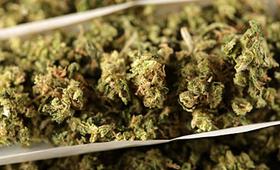Recreational Users vs. Medical Users
It was never a match made in heaven. On the one hand, California pot advocates eager to legalize and prove to the world that marijuana is a safe recreational drug. On the other, wary medical marijuana supporters worried their recreational cousins could get rowdy and cost everyone good grace with the public.
They didn’t fit well together in 2010, when recreational advocates pushed a ballot initiative to make all weed legal in the state. And they haven’t fit well since, with medical supporters trying to reduce heat from the federal government while the recreational supporters continue to agitate for legalization.
Forces Coming Together
But things may be changing. Now the U.S. Justice Department has announced it will essentially leave legal pot providers alone, momentum may be gathering behind moves in several states to legalize – including California. Weed is already legal in Washington State and Colorado.
The consensus seems to be that the issue will land on the ballot in California in 2016. A move is underway to go for the 2014 ballot, but it doesn’t yet have the full support of the cannabis community. Many of them feel a couple more years are needed for voters to recover from the election three years ago.
Polls show most Californians support legalization. That trend is only likely to climb in the next few years. And 2016, unlike 2014, is a presidential election year, meaning young voters will turn out in much larger numbers – and they’re the voters most likely to support legal weed.
A fractured group of marijuana advocates has come together in recent months, according to the San Francisco Chronicle.
“The hope is that California will be ready to end its prohibition and be ready to tax and legalize cannabis for adults,” said Will Matthews, spokesman for the Northern California branch of the ACLU.
Still, medical marijuana supporters have reason to be wary.
Reasons To Be Skeptical
On Sept. 10, the No. 2 official in Justice, Deputy Attorney General James Cole, will answer questions about the Obama administration’s pot policy before the Senate Judiciary Committee. Advocates of both recreational and medical weed hope he’ll answer some of their questions.
They want to know when and if the feds will stop cracking down on medical marijuana dispensaries, which are ostensibly legal under California law. And they want to know whether federal prosecutors will really hew to Justice’s new policy.
That policy was announced in a memo written by Cole in late August. It said the feds wouldn’t try to stop states from instituting medical or legal marijuana and wouldn’t target retail pot shops as long as they conform to state law. In return, the states must enact strict regulations that prevent such things as child use, violence and interstate trafficking.
At least one U.S. attorney, Melinda Haag of the Northern District of California, has announced she plans to move forward with ongoing cases against several legal dispensaries in the Bay Area despite the new instructions, raising concern the environment in the state may not change much at all.
 Legalization Prevention
Legalization Prevention
Other California forces don’t augur well for patients and users. Sen. Dianne Feinstein, one of the best-known and most-entrenched politicians in the state, has become a determined foe of all things marijuana. And she’s stood in the way of change several times.
Feinstein opposed the 1996 initiative that approved medical marijuana. And her opposition to the 2010 legalization proposal played a key role in killing it.
The senator told the Chronicle her focus at the Sept. 10 hearing would be on crime-fighting, not civil rights and patient access.
“I will seek confirmation that DOJ’s new guidance will not stop DEA or the Justice Department from investigating rogue medical marijuana dispensaries and illicit crop production in California,” said Feinstein.
Still, with U.S. drug policy at a remarkable turning point, California weed campaigners are coming together in hopes the tide has turned.
 California Marijuana Market Breaking "Marijuana News" from CA
California Marijuana Market Breaking "Marijuana News" from CA


